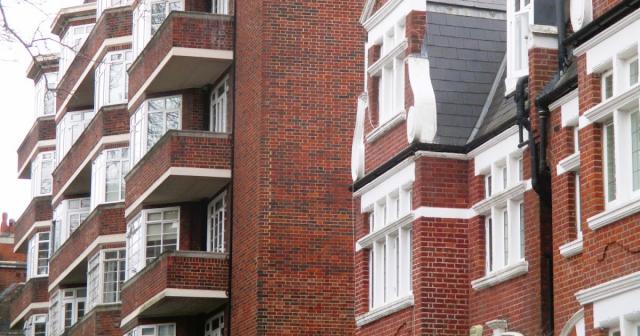The conventional wisdom is that house prices are so high in Britain because we do not build enough new houses. It also holds that this is because of restrictive planning laws and self-centred Nimby campaigners.
Several things puzzle me about this view. The first is that every town I know is ringed with street after street of new Housing.
Take Desborough, whose vanished high street so occupied me last month. There is almost a second town Desborough, built in recent years up the hill from the original town, that has its own Sainsbury's and M&S food store.
Related Articles
The second is that district councils cannot turn down planning applications just because they are unpopular with existing residents. They have targets for housing approvals to meet and the pressure on their budgets means that they are wary of turning down applications in case they have to bear the costs of a successful appeal.
And the third is something I blogged about five years ago. However many permissions to build councils grant, the interests of Developers will dictate how many new houses are built.
In that post I quoted the late great Ian Jack:
The hardly radical figure of Oliver Letwin identified the real brake on house-building when he published the interim conclusions to his inquiry into low completion rates last year. What governed the numbers, he decided, was the absorption rate – "the rate at which newly constructed homes can be sold into (or are believed by the house-builder to be able to be sold successfully into) the local market without materially disturbing the market price".
For ‘materially disturbing’ read ‘lowering’: to protect profits, developers are sitting on land that has been given planning permission. ‘Efficiency’ in this instance is a concept confined to the shareholder.
I have never seen anyone in the 'build baby build' camp address this point. They tend to see the answer as lying in even more market freedoms for developers and campaign for the loosening of planning controls. How those developers will be prevailed upon to act against their own economic interests is made clear.
But there is an article in today's Guardian that does address the point, and it agrees with Letwin:
The yimby argument has always seemed flimsy. Its strange logic is that speculative developers would build homes in order to devalue them: that they would somehow act against their own interests by producing enough surplus homes to bring down the average price of land and housing. That would be surprisingly philanthropic behaviour.
The article is by Nick Bano, who also argues that there is no evidence that Britain has a housing shortage:
In London, as the Conservative Home blog notes, there is a terrible housing crisis “even though its population is roughly the same as it was 70 years ago”, when the city was still extensively bomb-damaged by the second world war.
In terms of the Organisation for Economic Co-operation and Development countries, the UK has roughly the average number of homes per capita: 468 per 1,000 people in 2019. We have a comparable amount of housing to the Netherlands, Hungary or Canada, and our housing stock far exceeds many more affordable places such as Poland, Slovenia and the Czech Republic. It is impossible to make a case for unique levels of housing scarcity in Britain, in comparative international or historical terms.
Bano argues that our problem is not a shortage of housing but its cost. And the reason for that is landlordism.
For an answer to our current crisis, he looks back to the Seventies. Then, as a response to the evils of private landlordism highlighted by the case of Peter Rachman, Labour and the Conservatives agreed that Private Rented dwellings should be taken over by local authorities.
So successful was the move that the private rented sector declined from nearly 60 per cent of dwellings in England and Wales in 1939 to just 9 per cent in 1988.
It was when the Conservatives then began to argue again that being a private landlord should show an attractive economic return that the seeds of our current crisis were sown.
I did know a fair bit about housing in the Eighties when I chaired Harborough's housing management subcommittee, but I don't know enough now to judge how accurate this historical account in Nick Bano's article is.
But he has encouraged me to think that the conventional wisdom on housing is wrong. I suppose though, in the current climate, it is easier to blame local authorities for our problems than promote them as the solution to them. But maybe that's what needs to be done.

